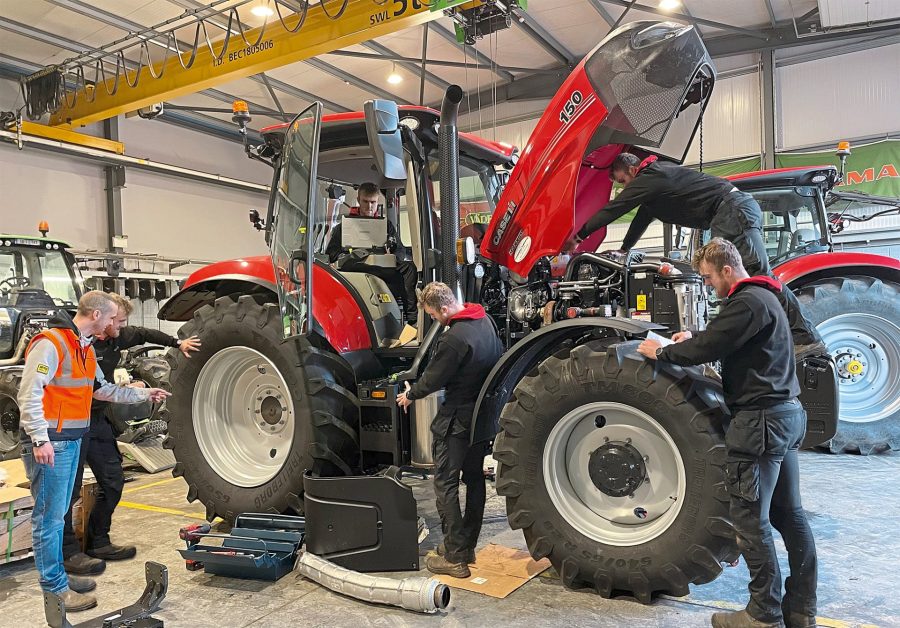The industry is responding to an employee shortage crisis by investing in training for the agricultural engineers of the future. But what exactly is involved during and after apprenticeships in the UK? We find out.
Agricultural engineering is undoubtedly suffering from the ‘labour gap’ experienced by other industries, with many dealerships struggling to fill vacancies and encourage newcomers. Apprenticeships can offer potential employees a rewarding entry to the industry, with government- funded college or academy-based training while earning a wage in an agricultural business. There has been a long tradition of industry- specific training via the agricultural colleges, helping apprentices gain the skills sought by their employers. Once the apprenticeship is complete, more specialised product training via the franchises held by the dealers enables them to develop their careers and gain further qualifications if required.
Others may choose to progress to higher education and/or a related career.
In an industry where machines, however sophisticated, will always need professional servicing, there will continue to be plenty of opportunities. CNH’s Mark Baines comments that the challenge for the industry is to spread the word to young people from outside farming of the benefits of working in the industry.
“Away from the aerospace industry, agriculture undoubtedly offers the greatest opportunity to be at the forefront of technology and automation. We need to communicate that it also offers good wages and plenty of variety in the enjoyable environment of the countryside.”
Midlands dealership B&B Tractors takes on a new apprentice each year and has done so for the last decade. “We’ve started attending local schools careers events to try and encourage school leavers to consider agricultural engineering, and have already had some applications for next year,” comments group aftersales manager, Andrew Walker. “We consider that it’s the best way to attract new entrants to the industry; dealers can’t complain about not being able to get staff if they don’t support such schemes.”
For more up-to-date farming news and reviews click here and subscribe now to profi for just £3.99 an issue.






